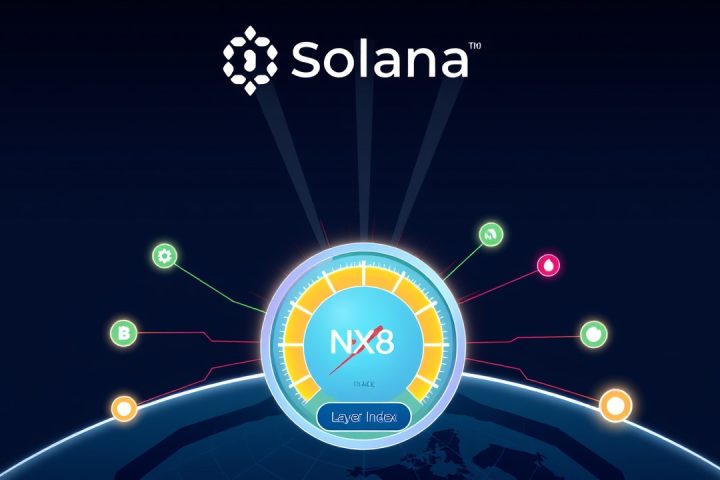Challenges in Decentralized Finance (DeFi)
The decentralized finance (DeFi) sector is facing a new wave of challenges that extend beyond conventional code vulnerabilities traditionally monitored by developers. While scrutiny of code is still essential, a recent series of high-profile exploits suggests attackers are innovating by targeting underlying economic structures that may have gone unnoticed.
Case Studies of Exploitation
A significant case was the JELLY token incident involving Hyperledger, where attackers managed to pilfer over $6 million from the platform’s insurance reserves. Rather than exploiting flaws in programming, this breach was facilitated by exploiting economic inefficiencies and poorly defined incentives that auditors overlooked.
Despite advancements in cybersecurity protocols, specifically the widespread adoption of smart contract audits designed to identify coding defects, it’s evident that these measures need to evolve. Current audits often rely heavily on identifying technical bugs while neglecting to consider economic risk factors and potential manipulation strategies inherent to DeFi platforms.
For instance, in March 2025, Hyperliquid’s exchange fell victim to an exploit worth $6 million, which was facilitated through the manipulation of its liquidation mechanics rather than any apparent coding error. Attackers engineered a short squeeze that led to artificially inflated prices, uncovering critical flaws in the project’s risk assessment practices.
This glaring oversight emphasized that even impeccably coded contracts can succumb to vulnerabilities in their economic frameworks.
The issue is not isolated, as illustrated by the earlier flash loan attack on Polter Finance that resulted in a $12 million loss. In this incident, the attacker skillfully exploited the lending protocol by manipulating the project’s price oracle and leveraging flash loans to present worthless collateral as high-value assets. Although the underlying code worked as intended, the platform’s economic design became its undoing, leading to its suspension.
Understanding Economic Vulnerabilities
These events are symptomatic of a broader trend impacting DeFi. Observed repeatedly, sophisticated threats exploit protocols by deftly manipulating market variables, incentive systems, or governance frameworks—outcomes that original developers did not foresee. Recent instances have included yield farms targeted through exploiting reward structures and stablecoins suffering from coordinated market disruptions.
Standard audits assess whether systems function as intended under typical conditions, yet they do not account for how these systems might behave under stress from adversarial forces. Unlike conventional software, DeFi platforms operate within a fluid market landscape characterized by price volatility and user adaptability.
Industry professionals often possess the engineering expertise necessary to identify coding errors; however, there tends to be a gap when it comes to assessing economic principles. This highlights the importance of integrative audits that not only identify technical flaws but also interrogate the economic logic that guides DeFi protocols.
Robust audits must encompass game-theoretic analyses, dissecting components such as transaction fee structures, liquidation mechanisms, collateral ratios, and governance protocols. They need to consider potential exploit scenarios:
“How might someone find a way to profit by circumventing established rules?”
For example, during a comprehensive audit by Oak Security, it was revealed that a perpetual swaps platform had neglected to factor in volatility risks—specifically, the structure of its insurance fund was too fragile to withstand market fluctuations. This was not a fault in the code, but rather a critical design oversight that could have led to catastrophic failures in unpredictable conditions.
The Way Forward
Recognizing these economic vulnerabilities is not exceedingly challenging, but it necessitates auditors to pose the right inquiries and maintain a mindset that extends beyond the confines of the code.
Founders must insist that auditors evaluate all facets of a trading ecosystem, including unformalized rules and external data sources, ensuring that security measures are thorough. Ideally, critical operational logic should be encoded on-chain to allow for better scrutiny and security.
For both entrepreneurs and investors in the DeFi space, it’s crucial to engage your auditors with pointed questions:
- How did you address oracle manipulations?
- What considerations were given to potential liquidity crises?
- Have you evaluated the tokenomics for possible attack vectors?
Responses that are vague or dismissive should prompt further investigation.
With the high stakes involved, integrating rigorous economic evaluations into audit processes is no longer optional—it’s essential for survival within the DeFi landscape. A cultural shift towards combining code analysis with economic insight must be prioritized to avert further multi-million dollar exploitations. It’s time to elevate our standards, ensuring we learn from past incidents before urgency compels action through repeated failures.




